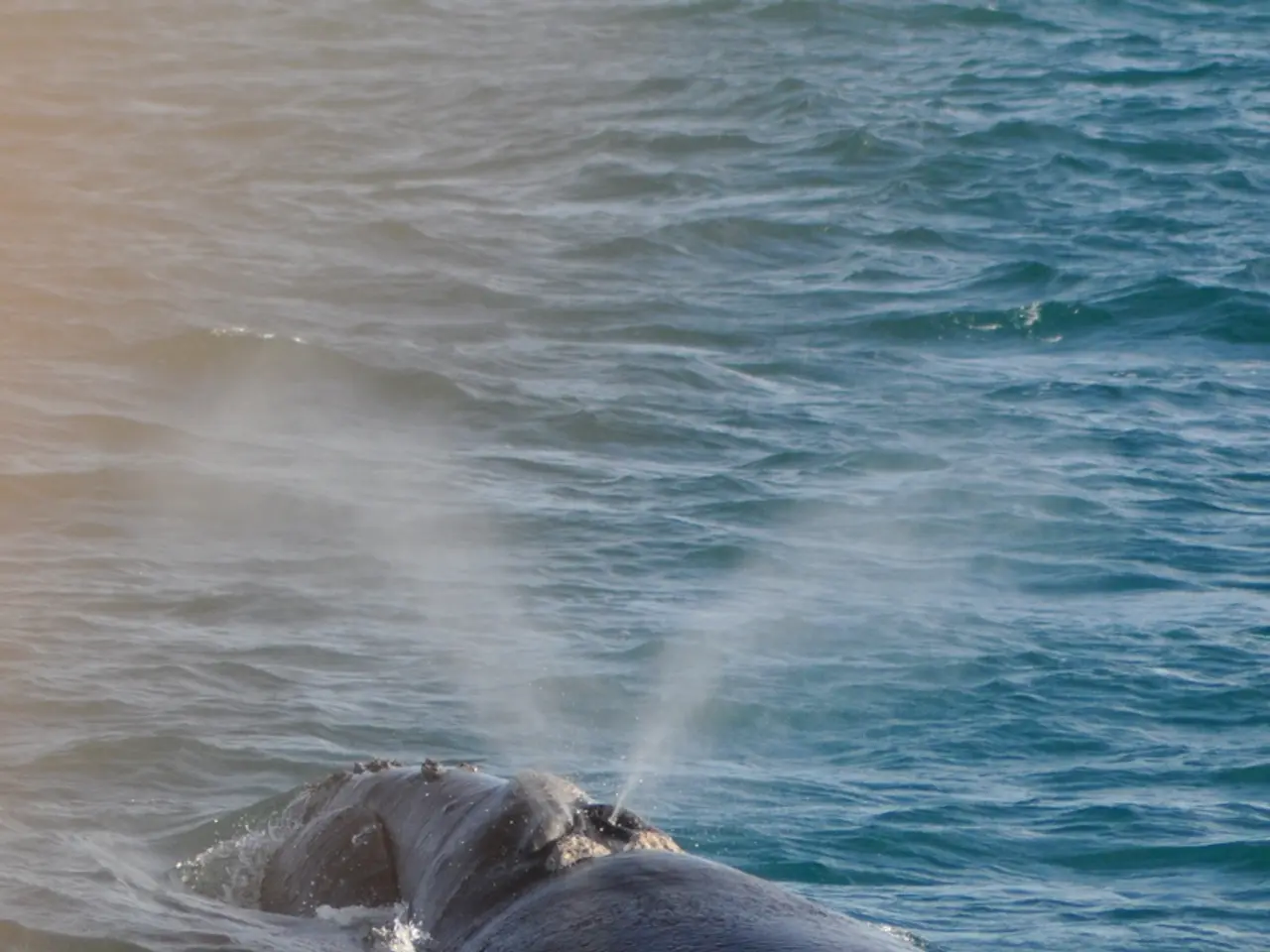Hearing the Call of the Great Whales
Breakthroughs in Whale Communication Using AI: A Step Towards Understanding the Natural World
In an exciting development, technology like Artificial Intelligence (AI) is being harnessed to unlock new scientific secrets in the realm of whale communication. This international effort, aimed at granting whales a voice and a legal identity, is providing invaluable insights into the complex world of these magnificent creatures.
The study of whale communication, facilitated by advanced technology, is contributing significantly to our understanding of the natural world. Researchers from projects like Project CETI and the Earth Species Project have made remarkable strides in decoding the intricate vocalizations of sperm whales, particularly their clicking sounds known as codas.
Project CETI, funded by a $35 million Ted Audacious grant, has made significant progress since its inception in 2020. They have identified 156 distinct coda types and demonstrated evidence of social learning in whales, suggesting a level of complexity in their communication akin to language phonetics. The project uses custom bio-inspired drones, suction cup tags, and glider systems to gather extensive acoustic and behavioral data for AI analysis.
This groundbreaking work not only advances our ability to decode whale language but also helps us understand whales’ emotional states and social interactions through multimodal data (sounds and body language). A notable achievement includes a 20-minute AI-facilitated conversation with a humpback whale, a testament to the potential of this technology.
Simultaneously, the international effort to grant whales legal personhood is gaining traction. Project CETI has partnered with New York University’s More Than Human Life (MOTH) Project to explore legal and ethical frameworks arising from these technological breakthroughs. A legal paper published in Ecology Law Quarterly in April 2025 discusses the implications of AI-assisted decoding of animal communication, examining how understanding whale vocalizations could influence the enforcement of anti-noise pollution laws and the broader recognition of whales’ rights.
While no major international treaty or law granting full legal personhood to whales has been enacted yet, the research community and legal scholars are actively working towards establishing ethical principles and legal precedents. This growing momentum towards acknowledging whales’ personhood and legal protections promises a brighter future for these intelligent and social creatures.
In conclusion, the AI-driven decoding of whale communication is rapidly advancing, revealing sophisticated vocal "alphabets" and social behaviors in whales. Simultaneously, international legal efforts are in a formative stage, seeking to define ethical and legal status for whales informed by these scientific insights. The future of whale communication research and the recognition of whales’ personhood is an exciting and promising area for continued exploration.
[1] Project CETI. (n.d.). About. Retrieved from https://www.projectceti.org/about [2] More Than Human Life (MOTH) Project. (n.d.). Projects. Retrieved from https://mothproject.org/projects [3] Earth Species Project. (n.d.). Projects. Retrieved from https://earthspeciesproject.org/projects [4] Ocean Alliance. (n.d.). Projects. Retrieved from https://oceanalliance.org/projects/
- The integration of Artificial Intelligence (AI) in environmental-science projects, such as Project CETI and the Earth Species Project, is revolutionizing our understanding of complex animal communication, specifically that of whales, by decoding their intricate vocalizations and exploring the possibility of granting them a legal identity.
- As breakthroughs in artificial intelligence continue to unveil the mysteries of whale communication, collaborative efforts between the scientific community and legal scholars—like the partnership between Project CETI and New York University's More Than Human Life (MOTH) Project—are working towards defining ethical and legal frameworks for these intelligent creatures, with the ultimate goal of recognizing them as legal persons.




